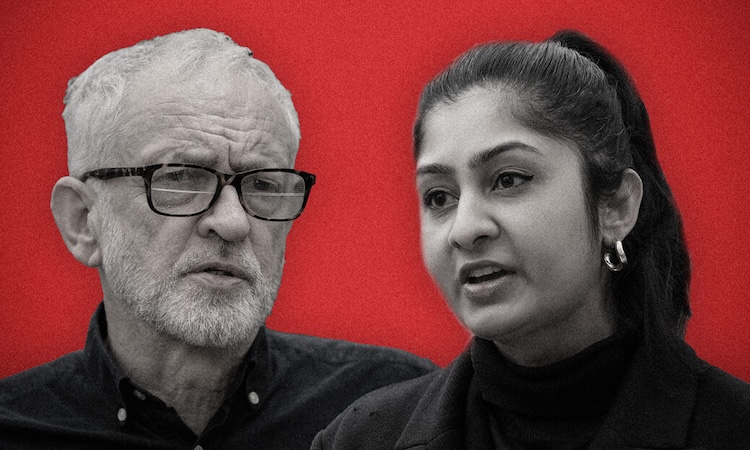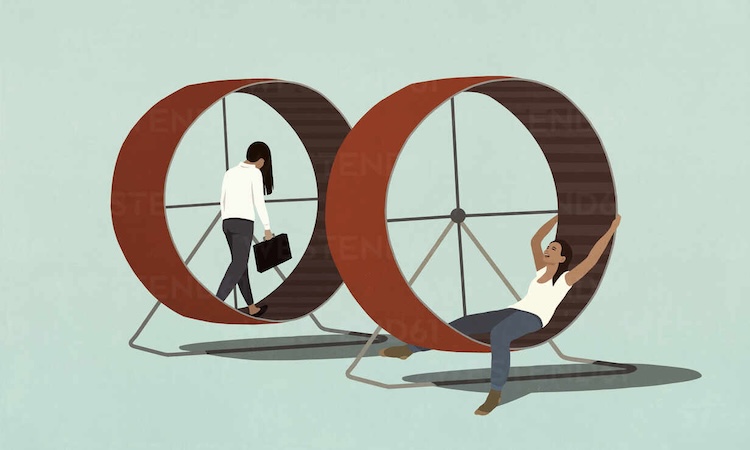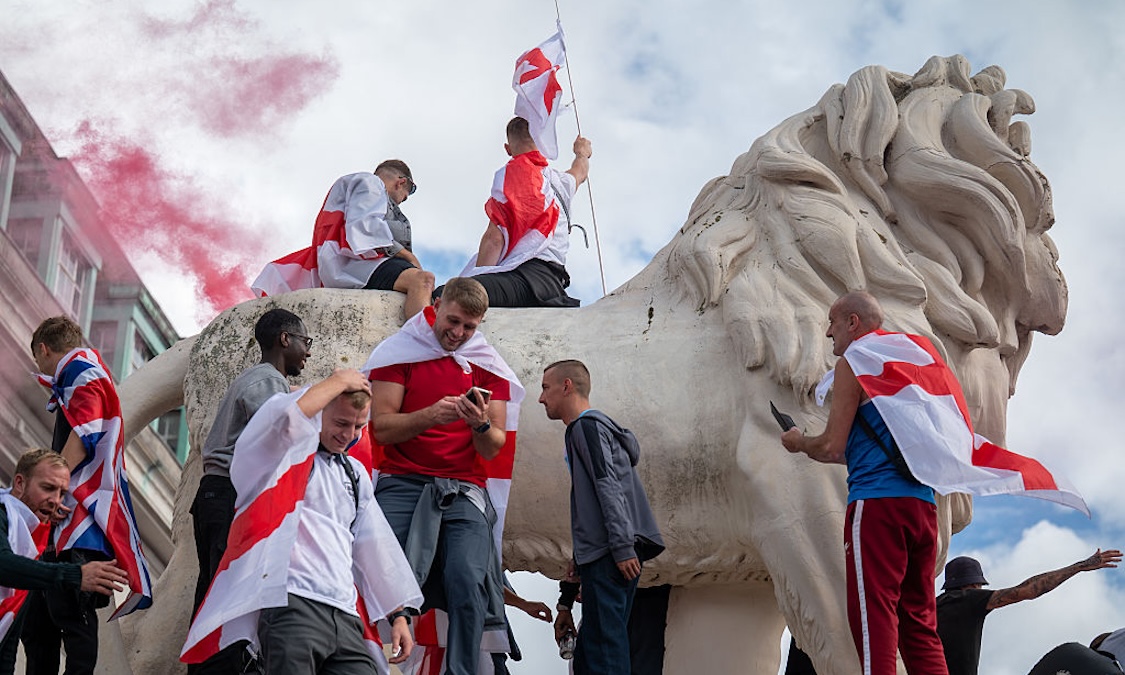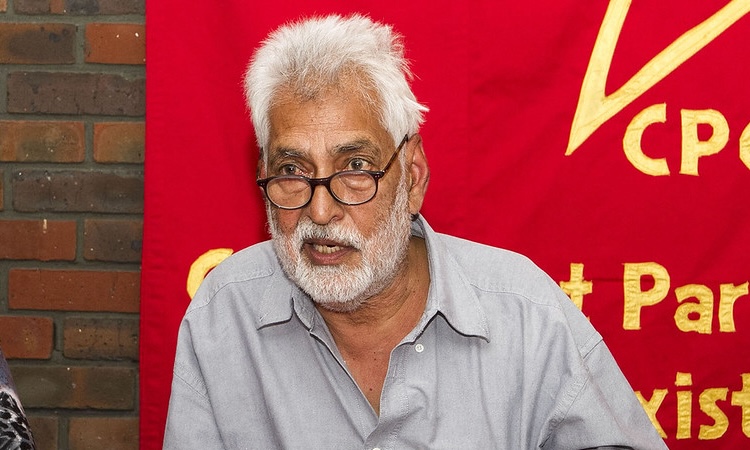We reported in the last issue of our paper on the proposed launch of a new ‘left-wing’ parliamentary party, called (for the time being at least) ‘Your Party’ and immediately jumped on by much of the Trotskyite and social-democratic ‘left’ as a heaven-sent solution to the many and pressing problems now facing the British working class.
Since we last wrote on the topic, the whole project has been enmeshed in a series of somewhat farcical controversies that our readers will either have been following avidly or will be completely oblivious to, depending on the extent of their exposure to the left-social-democratic twittersphere in which much of the drama has been unfolding.
The aim of this article is not to go into the ins and outs of the internecine warfare between the camps of ex-Labour MPs and proposed leaders Jeremy Corbyn and Zarah Sultana, but to examine some of the more obvious contradictions of this new Corbyn project.
The waxing and waning of social democracy in Britain
In many ways, of course, this could be considered an entirely redundant exercise, since the main issues with Corbyn’s new enterprise are exactly the same as those of Corbyn Project 1.0 – and, indeed, of all previous attempts by the British left to resuscitate social democracy since 1976.
First off, it has to be pointed out that when people talk about ‘postwar social democracy’, what they are really referring to is welfare capitalism – ie, a capitalist society in which a raft of significant concessions have been made that temporarily raise the living standards of the working class and narrow the inequality gap that is inherent to all capitalist economies.
The closest than Britain has come to a workers’ revolution was in 1919-20, during the communist-led Hands off Russia campaign. This mass campaign of non-cooperation with the British war effort in Russia successfully forced the ruling class to back out of the effort it was leading to crush the newly established Soviet Republic of Russia.
Although the events and lessons of that time have largely and shamefully been forgotten by the labour movement, they have never been forgotten by our ruling class, which successfully applied the experience it gained during that struggle to defeat the general strike of 1926. And it has been using the same formula of bribes and coercion combined to beat back workers in struggle ever since.
By the middle of the second world war, it had become apparent to the ruling class that the experience of war, the power of the labour movement and the widespread admiration for the Soviet Union and its leader Josef Stalin had radicalised British workers and brought them to a fuller appreciation of their class power. With British capital seriously battered by the great depression and two world wars, it was obvious to the more intelligent members of the ruling class that a return to prewar conditions would be asking for trouble.
To address this situation, the government commissioned Liberal peer Lord Beveridge to produce a report. The result was 1942’s Social Insurance and Allied Services, which outlined the shape of postwar British society. The report was widely read and discussed by the British people, in particular soldiers serving overseas – probably the only government report to have become a best seller!
A watered-down version of the Beveridge report went on to become the basis of the 1945 Labour government’s social policy and the Britain of council housing, free education and healthcare, pensions for all, full employment, rights at work and so on that many of us were born into was born. But once the welfare state had been established, the labour movement became depoliticised.
By the early 1950s, the British Communist party (the old CPGB) had declared unconditional surrender with the issuing of its British Road to Socialism programme, which predicted a peaceful and parliamentary development towards social and economic transformation. The labour aristocracy grew fat on the crumbs from their masters’ table, and the destruction of any working-class organisation capable of meaningfully challenging the capitalist system entered a new stage with the defeat of the miners’ strike in 1985.
Postwar gains destroyed and workers seized by the throat
Since that defeat (and in even more so since the fall of the USSR in 1991), we have seen the relentless clawing back of the modest gains of the postwar settlement, a steady fall in real wages, and an assault on workers’ rights and civil liberties. And, notably, this inexorable prosection of the class war was not interrupted or modified in any way during the 13 years of Labour government (1997-2010) under the premierships of Tony Blair and Gordon Brown.
As the decay of the British industry continued, workers in Britain were faced with hyperexploitative conditions at work and found themselves part of an increasingly parasitic economy. A century-long process of deindustrialisation was accelerated in the wake of the miners’ defeat, and the remnants of the welfare state were restructured into a vast money-laundering system whose primary purpose now is not the delivery of public services but the transformation of public money into private profit.
In this brave new world, the vultures of finance capital have their beaks thrust deep into the public purse, with one claw in our pockets and the other around our throats.
The accelerating fall in the living standards of millions of workers and their families has naturally led to a growing and increasingly urgent demand for change: for a better and more dignified life. It is in this context that we first saw the rise of an obscure backbench leftist MP to the leadership of the Labour party, accompanied by crowds of hopeful followers singing Hallelujah and broadcasting the good news that hope had returned to our unhappy land.
But that hope was short lived, as Saint Jeremy rapidly proved to be … well, hopeless. Whatever the intentions of Corbyn himself, the main effect of the 2015-19 Corbyn project was to direct the energy of a newly activated layer of workers who wanted real social and political change into a doomed attempt to reanimate the corpse of 1945-ist social democracy.
At a time when all the conditions that brought about the postwar consensus (a strong and militant working-class movement, the victory of the USSR in WW2, the need for postwar reconstruction of the economy) had vanished and British capital was facing a dire economic crisis, even Corbyn’s mildly social-democratic platform was considered ‘extreme’ by the City of London financier elite. As was his tepid rejection of zionist excesses in Palestine.
The project’s inevitable failure led only to widespread disillusionment and cynicism amongst those who had joined it with such high hopes. (For a more detailed analysis of the rise and fall of the Corbyn project, see our party pamphlet.)
‘Hope’ is not a programme or an organising principle
Turning our attention to the second coming of Corbyn, what can be said about and his attempt to rebuild the Labour broad church after Sir ‘Keith’ Starmer KC burned it down because he didn’t like the hymns the choir was singing?
“We are building a movement of hope,” declared Saint Jeremy in flat-toned earnestness. “Can we eat hope?” came a voice from the back of the broad church’s temporary tent. “Homemade jam tomorrow, brothers, sisters and others,” homespun wisdom today.
Indeed, the inchoate message of ‘hope’ is unlikely to be met with the same enthusiasm the second time around, and many things about Your Party’s debut on the British political theatre seem a little odd, to say the least.
Why, for example, was the initial announcement of the new party made by Zarah Sultana and not by Corbyn himself, given that the ‘party’ would be perceived as a revival and continuation of the Corbyn project? Why was his disapproval of Zarah’s move leaked to the press until he eventually gave his blessing? And why was this blessing bestowed in the form of a brain-numbingly dull interview with the odious Owen Jones – surely the kiss of death to any claim to be really ‘anti-establishment’?
Why was the founding conference hastily arranged before memberships or local organisations could be established, leading to the farcical situation where it was proposed that delegates should be chosen by drawing lots? This absurd process has been dubbed ‘sortition’, presumably to make random chance sound scientific and definitely not like chaotic buffoonery, but the first question that springs to mind is: Is it really possible to be this incompetent by accident?
Many parties of the self-identifying ‘left’ flocked to the newly-raised (if somewhat moth-eaten) banner, including every shade of Trotskyite scoundrel from the SWP, the SP, the RCP and Workers Liberty, along with the temporarily reanimated corpse of the revisionist CPB (whose leaders will no doubt be misquoting Lenin again to justify their opportunistic revisionism). Even ‘gorgeous’ George Galloway was sniffing around hoping to be invited to the ball. A recipe for disaster, such an unpalatable hash will surely be followed by just deserts.
As this article was being written, out of nowhere Corbyn’s clowns decided to set fire to the circus tent while they were still inside it. Could this be the end of the *insert name here* party before it has even got going? After all, as was (almost) said by Abraham Lincoln: “A circus tent divided against itself cannot stand.”
Aside from public spats over the control of finances and the make-up of the executive body of this new (and definitely very democratic) organisation, there appear to be some key differences in approach between the party’s two leaders and their respective advisory cabals. Corbyn, an experienced slippery operator of many decades’ standing, has been careful to say only nice things and allow his more ardent and uncritical fans to fill in the gaps and hear what they want to from his various vague pronouncements about the importance of hope, change, niceness, world peace and so on.
Ms Sultana, playing to her younger and more strident base, has been more categorical. On the one hand, she announced to the world that anyone who doesn’t accept transgender ideology will not be welcome in Your Party (an interesting approach to policy-making). On the other, she has declared herself to be a “proud anti-zionist”. But when Mr Corbyn was asked if he was also an anti-zionist, the questioner was shoved aside by aides and Corbyn ran away without answering.
In fact, the answer is clear: despite decades of ineffectual bleating about “Palestinian rights”, Corbyn was and remains a liberal zionist. Despite everything that has happened since the Oslo accords were so comprehensively torn up and spat upon by the imperialist-zionist side, Corbyn still insists on supporting the patently unworkable two-state ‘solution’.
Which means he insists on the existence of a ‘jewish state’ in the middle east – a state that everybody with eyes to see now understands could only be a racist, supremacist and genocidal tool of imperialism with which no sovereign Arab state will ever be able to live in peace. This is a ‘solution’ that the Palestinian and wider Arab masses long ago ditched and now resolutely oppose.
Given Sultana’s own rabid support for other imperialist-backed projects like the anti-Chinese Uyghur muslim terrorists and the anti-Syrian Isis terrorists, it is hard to take her ‘bold’ statement against imperialist-backed zionist terrorism at face value. But she was certainly expressing the attitude of a large section of the activist base from which the party hopes to draw – activists who are outraged by the crimes of zionism and increasingly intolerant of any of the stock excuses that the liberal left have been making for Israeli crimes for decades.
For Corbyn and the decidedly suspect ‘advisors’ he keeps around him, only a top-down party will be manageable, while the membership are all too likely to continue to demand the “full democracy” that he and Ms Sultana pretend to be in favour of.
Having glimpsed the ignominious end of their careers, Jeremy and Zarah have reconciled for now, the wheels have been put back on to the clown car and it seems it will chug on for a little while longer. Whether it is able to stay on the road long enough to help the ruling class achieve its twin aims of demolishing the Labour vote at the next election and saving social democracy in general, it is impossible at this point to predict.
*****
For more information on the shady characters acting behind the scenes of this latest attempt to distract workers and pull them back into the parliamentarist trap, we recommend the interview conducted by Alexander Mckay and Kit Klarenberg with Professor David Miller on the Decline and Fall YouTube channel.















